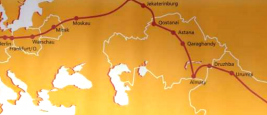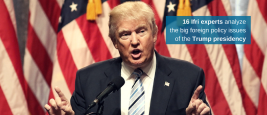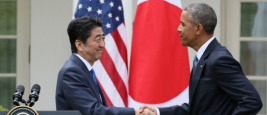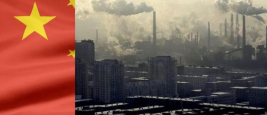
John SEAMAN
Research Fellow, Center for Asian Studies
Research Interests:
- Chinese energy and raw materials policy
- Geopolitics and political economy of Asia
- U.S.-China and Europe-China relations
- Geopolitics of the energy and digital transitions
- Chinese industrial strategy and foreign policy
- Critical raw materials (esp. Rare Earth Elements)
- Technical standardization
John Seaman specializes in the geopolitics and political economy of East Asia and on China’s relations with Europe and the United States. He also conducts research on China's industrial strategy and foreign policy, the geopolitics of the energy and digital transitions, and the political economy of critical raw materials.
Mr. Seaman joined Ifri in 2009. He holds a Master in International Affairs from Sciences Po, Paris, a Bachelor of Arts in International Economics from Seattle University, and studied as a NSEP David L. Boren Scholar at the Beijing Center for Chinese Studies (2002-03). He was an International Research Fellow with Canon Institute for Global Studies (CIGS) in Tokyo (2013-18).
Chinese investments in Europe have surged in recent years, becoming both a source of hope and growing concern across the continent.
France’s current presidential campaign has created an unprecedented situation fuelled by revelations and a total absence of restraint, but it has not truly taken account of the disruptions of the last year: Brexit, the attempted coup in Turkey, the election of Donald Trump, the recapturing of...
More than three years have already passed since China’s new silk roads were launched by President Xi Jinping. When he first mentioned the idea in an autumn 2013 speech in Kazakhstan, questions quickly emerged on the meaning of this general concept, which soon became widely promoted through a...
As China elaborates on the design of its "Belt and Road Initiative" (OBOR), the place of Europe within this project is slowly but surely taking shape.
What will become of US foreign policy under Donald Trump? A selection of Ifri researchers has come together to offer their thoughts on this question. Our experts cover an array of topics through 14 contributions, ranging from the future Sino-American relations, through US engagement in the...
China’s rise, US rebalancing in Asia, historic defense reforms in Japan, the adoption of new Guidelines for bilateral cooperation: the Japan-US alliance has reached a turning point in its history.
As China’s rise continues to shape and shake the course of international affairs, and Europe enters a new chapter in its collective history, Europe-China relations are becoming more relevant, but also much more complex.
This paper examines how China seeks to secure access to an ever growing level of natural resources from overseas. In its quest for resources necessary to fuel its economy, does China seek to bolster the development of international markets,...
The upcoming Paris climate conference (COP21) is opening the door to a new post-2020 climate regime in which China and other large emitters will have to provide strong evidence of their domestic efforts in addressing global warming in the next century.
Asia is now a nerve center for global economic activity and a theatre of some of the most pressing security concerns of our time. So important has Asia become to global affairs today, and ostensibly for the decades to come, that many have already dubbed the 21st Century as the “Asian Century”....













